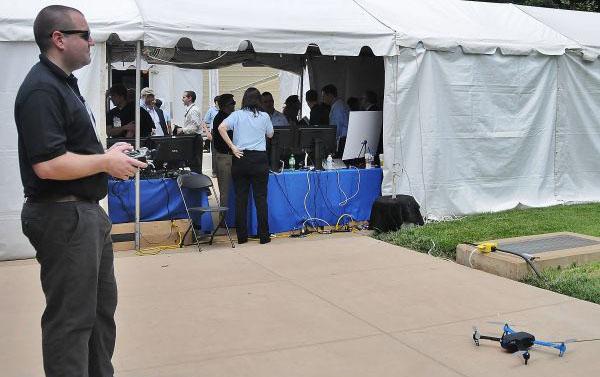'DARPA Dan' Profiles Agency Efforts on 60 Minutes
In case you missed it, CBS’s newsmagazine "60 Minutes" this weekend featured a segment with Dan Kaufman, director of the Information Innovation Office (I2O) for DARPA, who talked about the office’s efforts to outsmart hackers, sex traffickers and those seeking to do harm to the United States.
In case you missed it, CBS’s newsmagazine "60 Minutes" this weekend featured a segment with Dan Kaufman, director of the Information Innovation Office (I2O) for the Defense Advanced Research Projects Agency (DARPA), who talked about the office’s efforts to outsmart hackers, sex traffickers and those seeking to do harm to the United States.
“The number of [cyber] attacks is dramatically increasing; the sophistication of the attacks is increasing,” Kaufman told show host Lesley Stahl. “My job is not to wait for something catastrophic to happen and say, ‘Oh goodness, we should do something.’ My job is to say, ‘Hmm, I see this trend line going, I want to be way ahead of this line.’”
The former video gamer, who help invent the popular game “Medal of Honor,” said he was spurred by the terrorist attacks of September 11, 2001, to find solutions to make the nation a more secure place. During the program, he highlighted several I2O initiatives, including DARPA’s efforts to create protective software to make hack-proof drones and bomb-detecting robots through the High-Assurance Cyber Military Systems (HACMS) program, which could be extended to all systems connected to networks and an effort to constantly scan the military’s global computer network and zero in on any machine that has been hacked.
The show aired a demonstration of a hacker commandeering the on-board computer systems of a vehicle, activating the windshield washing fluid, horn and tampering with the brakes, so that Stahl was unable to stop the car when she wanted to. Though HACMS might have started off as a program for the military, Kaufman said, it easily can be expended to help safeguard a number of systems, like private vehicles. "I think that’s when DARPA’s at its very best,” Kaufman tells Stahl. “We’re solving a specific problem for the military … but I would like everything to be safe.”
“I don’t think the Internet is broken, I think the things we put on the Internet are broken,” such as unsecured devices that make up the emerging phenomenon called the Internet of Things (IoT), he related.
He's not so much worried that their efforts will plant ideas for nefarious deeds, he said. Instead, profiling the office's work sends a message. “What I want them to know is that there is somebody smart on the other side who is going to make that way harder,” Kaufman said. “I want to make them think twice.”





Comments